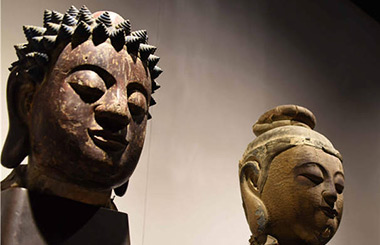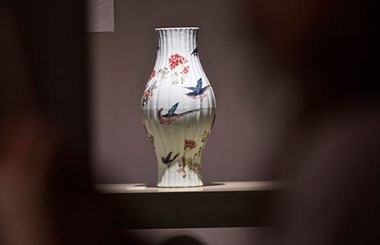Making inroads to a place where time stands still
By Hu Yongqi and Li Yingqing ( China Daily ) Updated: 2012-11-28 10:35:36
From November to June, the road is regularly rendered impassible by snow, which can lay 10 meters deep. Infrequent interaction with the outside world has sheltered the area from modernity, but it has also condemned the residents to a life of economic disadvantage.
The ethnic group was historically known as the Qiu people, but was renamed by former Premier Zhou Enlai in 1954 to Derung, meaning "single dragon" in Chinese.
Roughly 60 percent of the Derung live along Dulong River. Once they were famous throughout China for the facial tattoos sported by the womenfolk, but the practice is fast disappearing.
Li Wenshi, 73, and Lian Zixian, 74, both have facial tattoos, but the seven other girls tattooed alongside them as teenagers have passed away.
"The girls were bound with rope and the mother would hold her daughter's face still," explained Li Wenshi. "The tattooist scratched the design into their flesh with a sharp, red-hot chisel and then filled in the scars with ink made of soot from the bottom of cooking pots. The bloody scars took a week to heal and the girls' faces were swollen for at least five days."
The practice was forbidden during the "cultural revolution" (1966-76) and has never restarted, leaving those still bearing the tattoos as living historical relics.
The Derung people were too weak militarily to resist invasion from, among others, slave drivers from Tibet. According to the most widely accepted account, this resulted in the elders deciding to make the girls "ugly", and thus undesirable to invaders, by tattooing their faces. The tradition stuck and the indelible markings came to represent courage and became a prerequisite for marriage.
Only 34 tattooed women are left in the township, according to records at the Dulongjiang Frontier Police Station, and the youngest is 56. Two or three die every year, meaning that within a decade all trace of the practice could be gone. A series of photographs, taken when the local police station compiled health dossiers on the women, will be the only reminder of the tattoos that were once commonplace in the area.
|
|
|
|
|
|
|
|
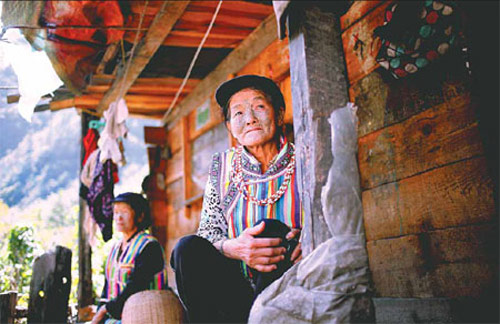

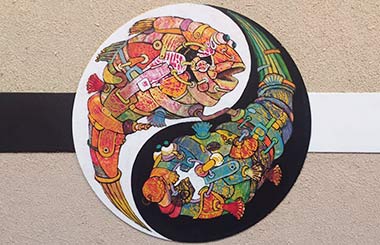

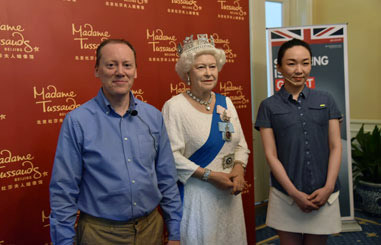



















 Raymond Zhou:
Raymond Zhou: Pauline D Loh:
Pauline D Loh: Hot Pot
Hot Pot Eco China
Eco China China Dream
China Dream China Face
China Face



